|
Unlike human disease pandemics, plant disease outbreaks are often hidden from view. They are no less important though – their impact on food production is just one reason why. Bernard Slippers, Jolanda Roux and Marinda Visser outline why efforts to monitor potential biological threats must continue.
The lockdown of a substantial portion of the South African economy at the end of March has come at a huge cost, which will add more pressure to an economy whose growth has been disappointing for more than a decade. Channing Arndt, Sherman Robinson and Sherwin Gabriel explain the outcome of their modelling of COVID-19’s impact.
|
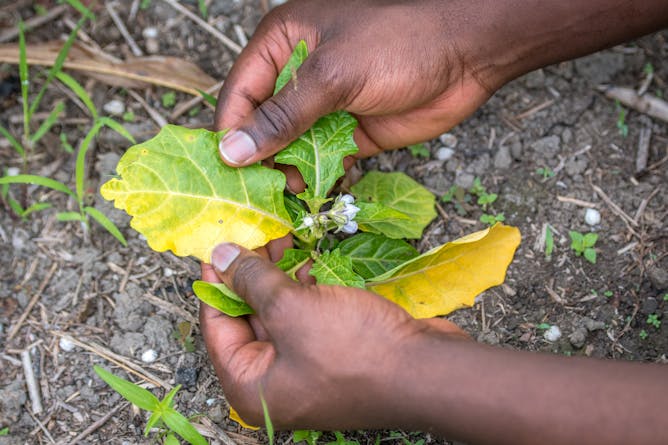
Hands-on monitoring is key to fighting many plant diseases.
Edwin Remsberg/VWPics/Universal Images Group via Getty Images
Bernard Slippers, University of Pretoria; Jolanda Roux, University of Pretoria; Marinda Visser, University of Pretoria
Plant diseases require as much attention now as ever to ensure that food systems are in place in the next season. There are also serious implications for forestry and the environment more broadly.
|
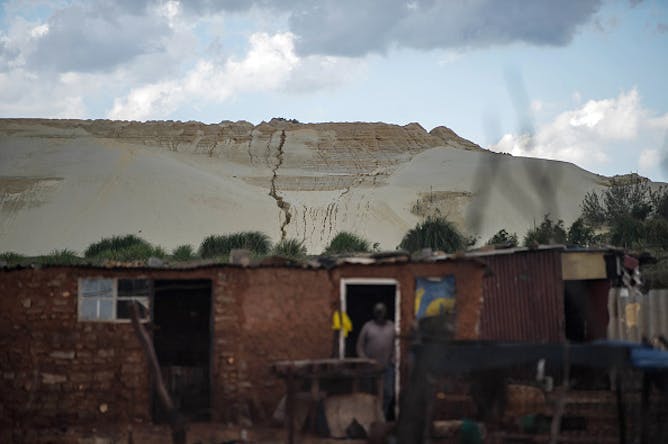
Grootvlei, Snake Park, an impoverished suburb on the fringe of one of the biggest mine dumps in Soweto, Johannesburg. Poor people have been hit hardest by the fallout of COVID-19.
Mujahid Safodien/AFP via Getty Images
Channing Arndt, CGIAR System Organization; Sherman Robinson, The International Food Policy Research Institute (IFPRI)
The net effect is that the shocks are most severe on poorer, more vulnerable households.
|
Politics + Society
|
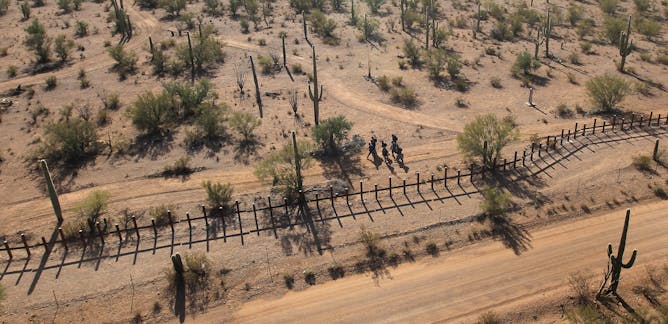
Taylor Edwards, University of Arizona
Government policies and dangerous conditions affect the ability of researchers working on both sides of the US-Mexico border to conduct scientific fieldwork.
| |
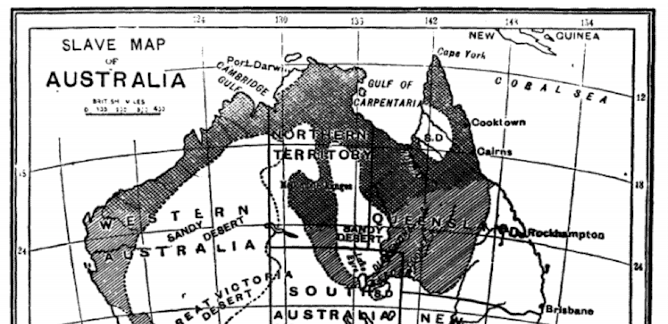
Thalia Anthony, University of Technology Sydney; Stephen Gray, Monash University
Prime Minister Scott Morrison's statement that 'there was no slavery in Australia' is at odds with the historical record.
|
|
|
COVID-19
|
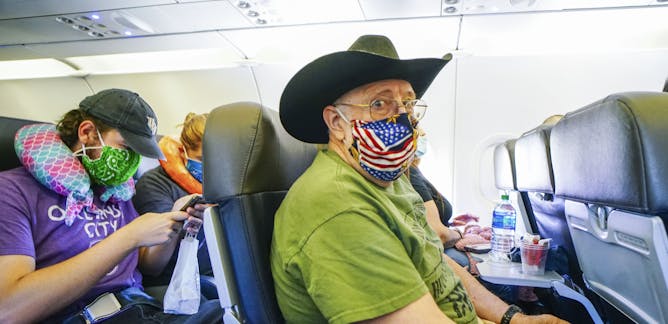
Kacey Ernst, University of Arizona; Paloma Beamer, University of Arizona
Fear of flying means something altogether different in the age of the new coronavirus. Now the biggest concern is how to keep from becoming infected. If you must fly, here are some things to consider.
| |
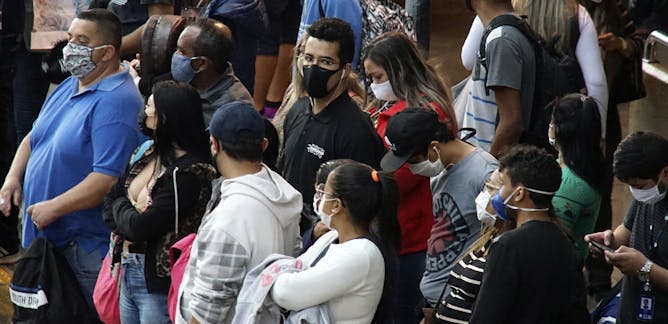
Elizabeth McGraw, Pennsylvania State University
Epidemiological data suggests that 80% of COVID-19 cases can be traced to just 20% of those infected with SARS-CoV-2.
|
|
|
En español
|
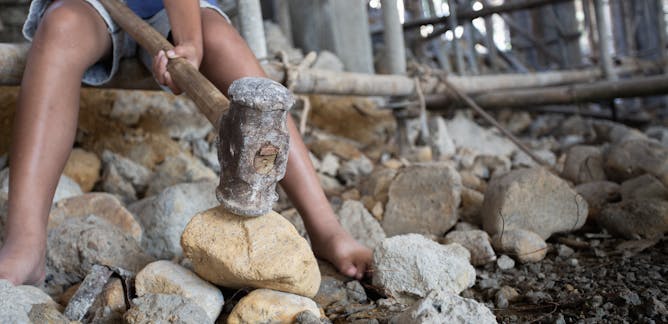
Carlos Villagrasa Alcaide, Universitat de Barcelona
El Día Mundial contra el Trabajo Infantil tiene como objetivo luchar contra la utilización de menores de edad por personas adultas, para fines económicos, en actividades que afectan a su desarrollo personal y emocional y al disfrute de sus derechos.
| |
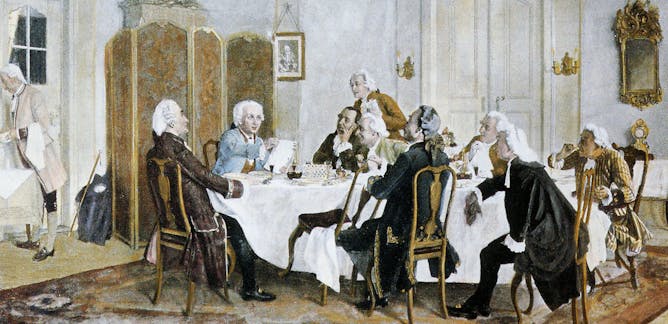
Roberto R. Aramayo
Los filósofos pueden resultar muy entretenidos. Basta con que nos asomemos a sus biografías, tal como hacemos para familiarizarnos con los grandes hitos de la historia, vinculando sus ideas con su vida.
|
|
|
En Français
|
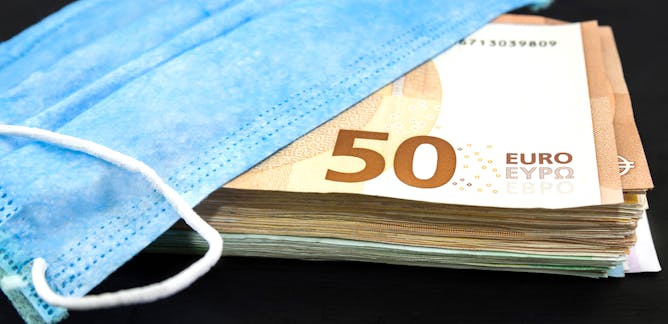
Jézabel Couppey-Soubeyran, Université Paris 1 Panthéon-Sorbonne; Erica Perego, CEPII; Fabien Tripier, CEPII
Le Covid-19 met à l’épreuve les réformes bancaires entreprises à la suite de la crise de 2008 et révèle la fragilité des dispositifs prudentiels comme des mécanismes de résolution européens.
| |

Francis Rocard, Centre national d’études spatiales (CNES)
Allons-nous réussir à reprendre contact avec la sonde spatiale Voyager 2 après la rénovation de l’antenne qui sert à lui parler ? D’ici là, retour en images sur un voyage scientifique interplanétaire.
|
|
|